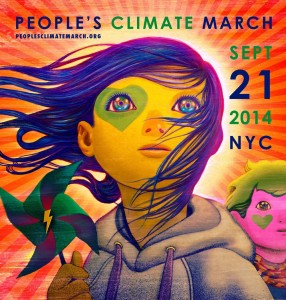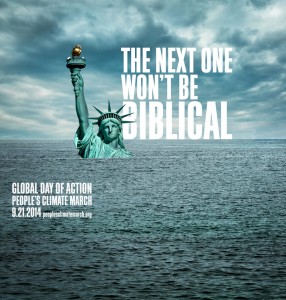Je Suis Charlie: The People want Peace
your right to say it.”
– Voltaire –
http://youtu.be/unirIkWPztY
PEACE ON EARTH, GOOD WILL TO MEN
“Peace on Earth, Good Will to Men”… the songs of Christmas were still fresh in the collective memory when two masked gunmen armed with AK-47s and other weapons attacked the Paris offices of the French Satirical newspaper Charlie Hebdo, killing twelve people and wounding eleven others.
Another gunman took hostages at a kosher supermarket in a related incident, with a total of 20 people killed, (including 3 terror suspects) and 21 others injured between the 7th and 9th of January 2015 in the deadliest terrorist attack in France in over 50 years.
Charlie Hebdo is a weekly newspaper that has irreverently satirised the extreme right, Catholicism, Islam, Judaism, politics, and culture for years, no doubt offending plenty of people along the way. The killings of writers and artists and unarmed, innocent citizens raised many issues, some of them regarding freedom of expression – should it be allowed? Should people be allowed to silence the views of others with whom they disagree – either through repressive laws or by killing them?
JE SUIS CHARLIE
The immediate reaction from cartoonists around the world was the #Je Suis Charlie campaign on Twitter in with pencils and pens responding to weapons and terrorist threat in a thousand creatively thought-provoking ways was a vivid demonstration of how the pen can indeed be mightier than the sword. Those images will be speaking eloquently for a hundred years in a hundred languages.
Possibly the simplest response of all was from Christian Adams from London’s Telegraph where the title: EXTREMIST APPROVED CARTOON was set into the frame of a completely blank cartoon panel.
The violence was hate-fuelled, racist and motivated by a grotesquely distorted vision of religion. In a remarkable response over 1.5 million people took to the streets in Paris today in what has been called the “march against hatred”. People from all backgrounds, religions and colours joined in the peaceful show of solidarity which, along with simultaneous marches across the country turned into the largest demonstration in the history of France.
The attacks raised other issues as well.
SUCCESS OF THE WAR ON TERROR
After 9/11 the USA declared its “War on Terror”
Today, when most public services are experiencing damaging cuts in the name of Austerity, the War on Terror is one budget which has been declared untouchable. It has already cost trillions of dollars and caused millions of deaths and unimaginable suffering.
The only apparent success of the war on terror has been in creating a climate of political fear and enabling the US military establishment to award itself almost unlimited access to taxpayers money.
Tom Engelhardt Professor of Journalism at University of California, Berkeley, in a an opinion piece in the Huffington Post, described the US’s response to the 9/11 bombings and its War on Terror as a total failure in reducing terrorism. He points out that in fact it transformed global jihadism from “a microscopic movement on this planet” to the number-one foreign policy concern.
WE WANT PEACE, THEY WANT WAR
The man in the street does not want violence or war, as the march in Paris today showed, and the marches around the world before the invasion of Iraq showed.. (and the examples go on and on…)
But war can prove extremely profitable to those dealing in weapons of death.
The top five countries profiting from the arms trade are the five permanent members of the United Nations Security Council: the USA, UK, France, Russia, and China.
ARMS TRADE FIGURES FOR 2004-2011:
- USA – 44% – $220.608 Billion Dollars – mostly to Developing Countries
- Russia – 17% – $83.323 Billion Dollars – mostly to Developing Countries
- France – 8% – $41.96 Billion Dollars – mostly to Developing Countries
- UK – 5% – $27.037 Billion Dollars – mostly to Developing Countries
- China – 4% – 17.808 Billion Dollars – to Developing Countries
So as we sit back and contemplate the amazing scenes we witnessed in Paris today and all that they represented – a combined voice against hatred, a call for peace and tolerance, the choice of individuals to care for other human beings they have not even met, a unified vote to respect the values of Freedom, Equality and Brotherhood…
Possibly at this time one of the questions we should be contemplating is whether these values are also the priorities of those who call themselves our leaders.
Or whether they have other priorities.
People’s Climate March: Ubuntu: We Have a Duty to Persuade Our Leaders
We can. You and you and you, and me.
And it is not just that we can stop it, we have a responsibility to do so that began in the genesis of humanity, when
“to till it and keep it”. To “keep” it;
not to abuse it, not to make as much money as possible from it, not to destroy it.”
— Desmond Tutu —
Extracts from an article by Desmond Tutu writing in the Observer on the day of the biggest global call-to-action on Climate Change in history.
Marches and protests took place worldwide. Organisers in Manhatten said some 310,000 people joined the march, including Secretary General of the United Nations, Ban Ki-moon.
“This is the planet where our subsequent generations will live,”
Mr Ban said: “There is no ‘Plan B’ because we do not have ‘Planet B’.”
The People’s March has been organised just ahead of the United Nations Climate Summit in New York next week. Campaigners are demanding curbs on carbon emissions along with changes in law which would prevent a continuation of the unprecedented levels of damage currently being done to humans and the environment by unfettered psychopathic and antisocial corporate greed.
(Comment by RZ, not Desmond Tutu)
The complete article can be read here: Desmond Tutu: We fought apartheid. Now climate change is our global enemy
“As responsible citizens of the world – sisters and brothers of one family, the human family, God’s family – we have a duty to persuade our leaders to lead us in a new direction: to help us abandon our collective addiction to fossil fuels, starting this week in New York at the United Nations Climate Summit.”
“Just as we argued in the 1980s that those who conducted business with apartheid South Africa were aiding and abetting an immoral system, we can say that nobody should profit from the rising temperatures, seas and human suffering caused by the burning of fossil fuels.“
“We can boycott events, sports teams and media programming sponsored by fossil fuel companies; demand that their advertisements carry health warnings; organise car-free days and other platforms to build broader societal awareness; and ask our religious communities to speak out on the issue from their various pulpits. We can encourage energy companies to spend more of their resources on the development of sustainable energy products, and we can reward those companies that demonstrably do so by using their products to the exclusion of others.”
We can encourage more of our universities and municipalities, foundations, corporations, individuals and cultural institutions to cut their ties to the fossil fuel industry. To divest, and invest, instead, in renewable energy. To move their money out of the problem and into the solutions.
People’s Climate March Design Contest
We can urge our governments to invest in sustainable practices and stop subsidising fossil fuels; and to freeze further exploration for new fossil energy sources. The fossil reserves that have already been discovered exceed what can ever be safely used. Yet companies spend half a trillion dollars each year searching for more fuel. They should redirect this money toward developing clean energy solutions.
We can support our leaders to make the correct moral choices and to avoid undue industry influence that blocks the political will to act on climate change. Through the power of our collective action we can hold those who rake in the profits accountable for cleaning up their mess.”
The good news is that we don’t have to start from scratch. Young people across the world have identified climate change as the biggest challenge of our time, and already begun to do something about it.
Once again, it is a global movement led by students and faith groups, along with hospitals, cities, foundations, corporations and individuals. It is a moral movement to persuade fossil fuel companies away from a business model that threatens our very survival.
My prayer is that humankind takes its first tangible steps in New York this week – as a collective – to move beyond the fossil fuel era.
“There is a word we use in South Africa that describes human relationships: Ubuntu. It says: I am because you are. My successes and my failures are bound up in yours. We are made for each other, for interdependence. Together, we can change the world for the better.”
People’s Climate March Design Contest Winning Designs
The contest had two winning designs which will form the basis of a creative NYC subway ad campaign that will highlight both the depth of the climate crisis facing us, and the hope that organized people power can push our governments to take bold action. The winners are:
James Jean with “Winds of Change”, and Ellie and Akira Ohiso with “The Next One won’t be Biblical”
Read More
Sting: Rediscovering the Muse as The Last Ship Sails
constructed on the planet were built
right at the end of my street.”
— STING —
Sting grew up in the shadow of the shipyard, with giant ships rising into the air at the end of his street. Newcastle-Upon-Tyne was at the heart of the British shipbuilding industry.
The Dream
But instead of wanting to follow in the footsteps of generations of Tynesiders whose lives were inextricably linked with the docks and the shipbuilding industry, Sting had a different dream. It was one that grew exponentially with the discovery of a guitar in the attic at the age of 8 . “I was bequeathed a guitar and realised I had found a friend for life.”
The dream would become his life and Gordon Sumner would become internationally known as the musician Sting, but first he had to turn his back on his roots and travel away. He had no desire to return to the traumatised society he witnessed during the closure of the ship building industry.
It’s my belief that abstract economic theory that denies the needs of community or denies the contribution that community makes to economy is shortsighted, cruel and untenable”
— STING —
The muse Sting chose to follow as a singer/songwriter and multi-instrumentalist was one that would bring us such unforgettable songs as “Roxanne”, “Fields of Gold”, “Message in a bottle”, “Every Breath You Take” and “Englishman in New York”.
Sting’s astonishing success both as a member of “The Police” and during his solo career, together with his prolific song-writing ability made it particularly difficult for him to come to terms with a long period of “writer’s block” which stretched into years of self-questioning.
He eventually acknowledged a need to return to his roots in Newcastle, a decision which was to reunite him with his muse and he has spent the past few years working on a theatrical production called “The Last Ship” – inspired by the demise of the shipbuilding industry in the North East.
Sting released the album “The Last Ship” in 2013 and the musical production launched its pre-Broadway tryout in Chicago last Wednesday with songwriters Paul Simon, James Taylor and Dennis DeYoung watching from the orchestra seats, according to the review by Chris Jones in the Chicago Tribune.
Political Activism
A sense of the injustices caused by corrupted power led Sting along the path of political activism, participating in many of the focal moments in which creative artists have joined forces to raise international awareness of major issues: Band Aid, Live Aid, Feed the World”, Live8 etc.
His long involvement with Amnesty International which began with his appearance at the “Secret Policemen’s Other Ball” in 1981 has inspired some of the songs he has written.
“Before that I did not know about Amnesty, I did not know about its work, I did not know about torture in the world” .
Sting’s song “They Dance Alone” threw a spotlight on the plight of the mothers, wives and daughters of “The Disappeared” (political opponents killed by the Pinochet regime) in Chile. These women, under constant threat from Pinochet’s infamous death squads, were afraid to voice their opinions publicly but would pin photos of their missing loved ones to their clothing and dance in public places in unspoken outrage.
Dendropsophus Stingi and The Rainforest Foundation
Sting, his wife Trudi and Raoni Metuktire, a Kayapó Indian leader in Brazil, founded the “Rainforest Foundation” to help save the rainforests and protect the rights of the indigenous people living in them. (In recognition of his “commitment and efforts to save the rain forest”, a species of Colombian tree frog, Dendropsophus stingi, was named after him.)
In addition to 16 Grammy Awards, a Golden Globe, an Emmy and several Oscar nominations. Sting has sold nearly 100 million records worldwide, was 62nd on Paste Magazine’s list of 100 Best Living Songwriters, 63rd on VH1’s “100 Greatest Artists of Rock” and 80th on A magazines “100 Greatest Musical Stars of the 20th Century”
Read MoreYour Name on the Arctic Sunrise
It belongs to all of us.
Don’t let them destroy it.
PUT YOUR NAME ON THE ARCTIC SUNRISE – HERE
Help protect this important and unique environment and its inhabitants by supporting Greenpeace with a donation to help fund their work. After months without proper maintenance while in Russian custody, their ship the Arctic Sunrise requires a thorough overhaul and refitting including the replacement of equipment removed by the Russian authorities.
The Arctic Sunrise so when she sails into the sunrise, we all sail with her.
People who care about the planet believe that there should be a global sanctuary in the Arctic, which will help preserve its unique wildlife and habitat and allow the Arctic to continue to help stabilise the world’s climate.
More Information Available on SaveTheArctic.org
Why does the Melting of the Arctic Sea Ice Matter to Me?
More info on SavetheArctic.org
Rosneft is a massive Russian company whose pipelines spill over 2,000,000 tons per year. Now it’s moving into Arctic waters, where it plans to build over 100 rigs.
Together with Exxon, Rosneft plans to drill in an area overlapping the Russian Arctic National park, a sanctuary for polar bears, walrus and narwhals.
The Arctic could be devastated.
All for a few last drops of oil.
Environmental Activist
As an exemplary environmental activist, The Arctic Sunrise has taken part in campaigns and protests across the world, from withing 450 miles of the North Pole, to Antarctica’s Ross Sea, and it has Navigated both the Congo and the Amazon rivers, raising awareness of issues threatening the areas. Among other things, it has campaigned to stop whaling, taken part in protests in support of sustainable fishing, taken action to stop North Sea trawlers fishing cod towards extinction and campaigned against the Star Wars weapons programme.
The Arctic Sunrise is classified as a “1A1” Icebreaker – the second highest ice strengthening notation at the time of her construction in 1975. She was originally used as a seismic survey vessel, named Polarbjørn (“polar bear”) and was later used by the French Government. Greenpeace purchased the ship in 1995, having resorted to forming a “shell company” called “Arctic Sunrise Ventures Ltd” through which it made the purchase as the previous Norwegian owners had refused to sell the ship to Greenpeace.
Read More
Maya Angelou: The Song Bird Flies
what you said,
people will forget what you did,
but people will never forget
how you made them feel.
— Maya Angelou —
Maya Angelou, a voice that inspired generations through powerful prose and poetry and the light of a fiery and shining soul, has died at the age of 86.
Like thousands of others, I discovered the power of Maya Angelou’s writing when I came across the book “I Know Why The Caged Bird Sings” – seven words that I couldn’t get out of my head, and never left my heart. Why would someone put something as beautiful and free as a bird into a cage? And why would a caged bird choose to sing?
Three year old Maya and her brother Bailey Junior were sent to live with their grandmother in Stamps, Arkansas after their parents divorce. Maya spent 10 years discovering what it was like to grow up in one of America’s poorest regions with all the prejudice and racial segregation of the Deep South (such as the white dentist who refused to treat Maya’s rotting teeth, even when reminded by her grandmother that she had lent him money during the Depression).
Maya was born Marguerite Ann Johnson in St Louis, Missouri on 4 April 1928 and the name Maya originated from her brother’s way of saying “My-a sister”.
The Silent Voice
At the age of 7, when visiting her mother in St Louis, she was raped by her mother’s boyfriend. When she told her family what had happened, the man was arrested, tried and released, but was murdered shortly afterwards. For the next five years, Maya Angelou didn’t speak:
“When I heard about his murder, I thought my voice had killed a man and so it wasn’t safe to speak.
“After a while, I no longer knew why I didn’t speak, I simply didn’t speak.”
During her silence, she read incessantly and was eventually persuaded to speak again by Mrs. Bertha Flowers, “the aristocrat of Black Stamps” who encouraged her reading, and recognising her love of poetry told her that to be fully experienced, poetry had to be read aloud. “You will never love poetry until you actually feel it come across your tongue, through your teeth, over your lips.”
Maya Angelou went on to have an extraordinary career which she writes about in her books, including becoming San Francisco’s first female cable car conductor at 15, the experience of being a young mother at 16, time as a dancer, waitress, prostitute, actor and singer, travelling around Europe and Africa with the Opera Porgy and Bess, her involvement with the civil rights movement, working with both Malcolm X and Martin Luther King and experiencing the trauma of both their assassinations – King was killed on her birthday.
She writes of falling in love with South African civil rights activist Vusuma Make and moving to Cairo with him, practicing as a journalist in Egypt and later in Ghana during the time of decolonisation, her son’s car accident and the years after her return to the US in 1965 and her decision to start writing “I Know Why The Caged Bird Sings”.
Other autobiographical books that followed the Caged Bird include
“Gather Together in My Name “(1974),
“Singin’ and Swingin’ and Gettin’ Merry Like Christmas” (1976),
“The Heart of a Woman” (1981),
“All God’s Children Need Traveling Shoes” (1986),
“A Song Flung Up to Heaven” (2002), and
“Mom & Me & Mom” (2013, at the age of 85).
Ritual
Maya Angelou used the same “writing ritual” for many years and described her writing process as regimented.
The Ritual involved getting up at five in the morning and booking into a hotel room where the staff have been instructed to remove all pictures from the walls. She has a bottle of sherry, a deck of playing cards, a copy of Roget’s Thesaurus and the Bible, and she writes on legal pads.
She places herself back in the time she is writing about, even when traumatic and plays solitaire she says to reach a place of enchantment and access her memories more effectively. “It may take an hour to get into it, but once I’m in it—ha! It’s so delicious!”. It is not the process which she finds cathartic but rather the relief that she finds in “telling the truth”.
“I try to get there around seven, and work until around two in the afternoon … Maybe after dinner I’ll read to [my husband, Paul du Feu] what I have written that day. He doesn’t comment. I don’t invite comments from anybody but my editor.”
Angelou has credited African-American poet Paul Laurence Dunbar along with Shakespeare for inspiring her “writing ambition” and the title of her first book comes from Dunbar’s poem “Sympathy.”
the caged bird sings, ah me,
When his wing is bruised
and his bosom sore,
When he beats his bars
and would be free;
It is not a carol of joy or glee,
But a prayer that he sends
from his heart’s deep core,
But a plea, that upward
to Heaven he flings –
I know why
the caged bird sings.
— Paul Laurence Dunbar —
Read More







